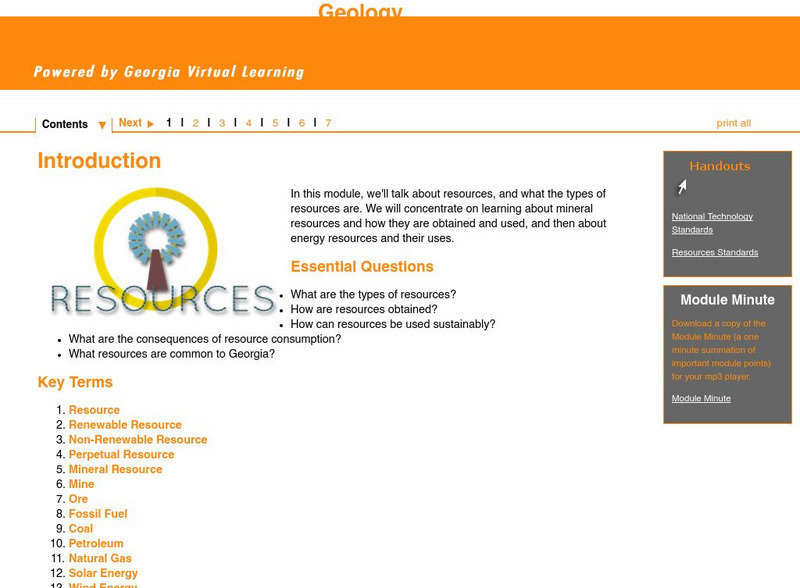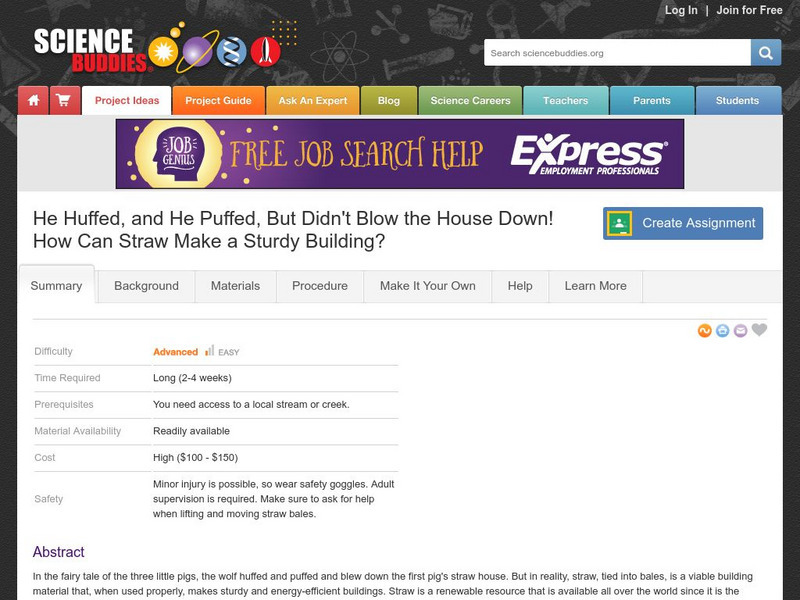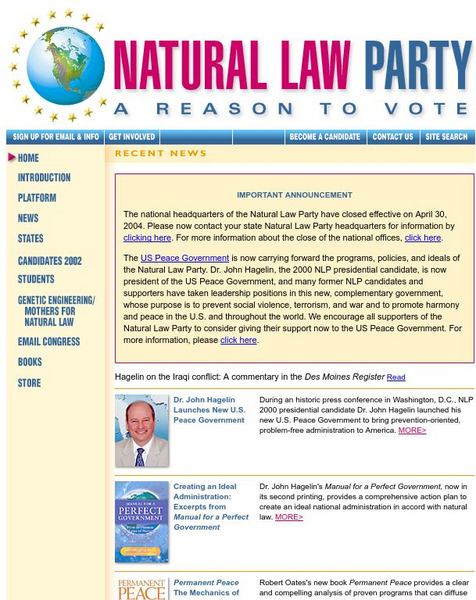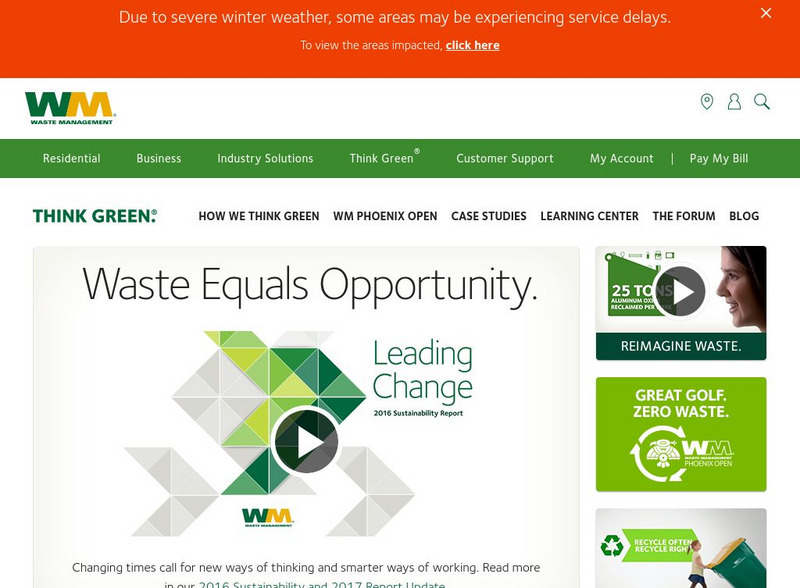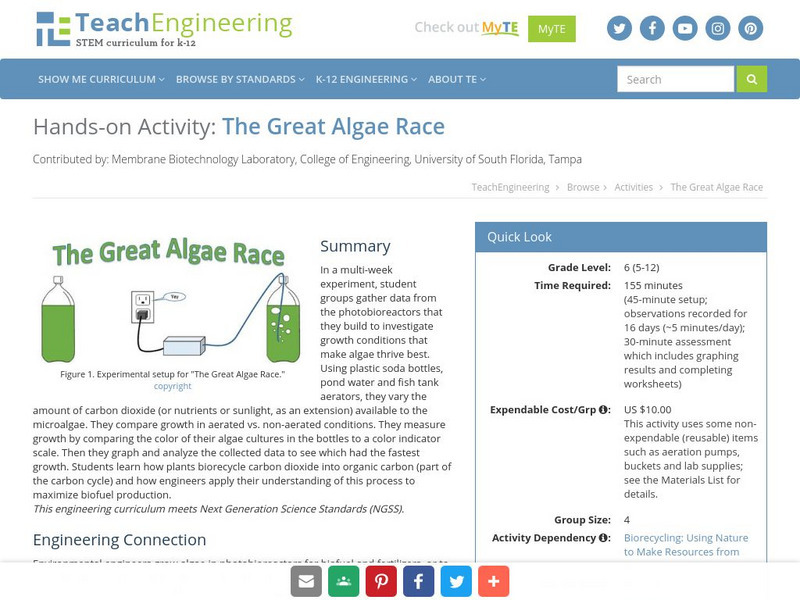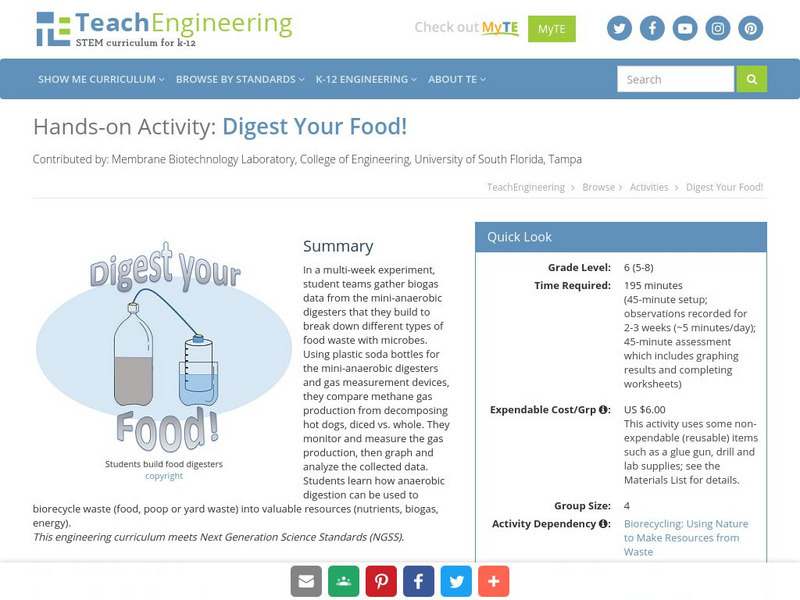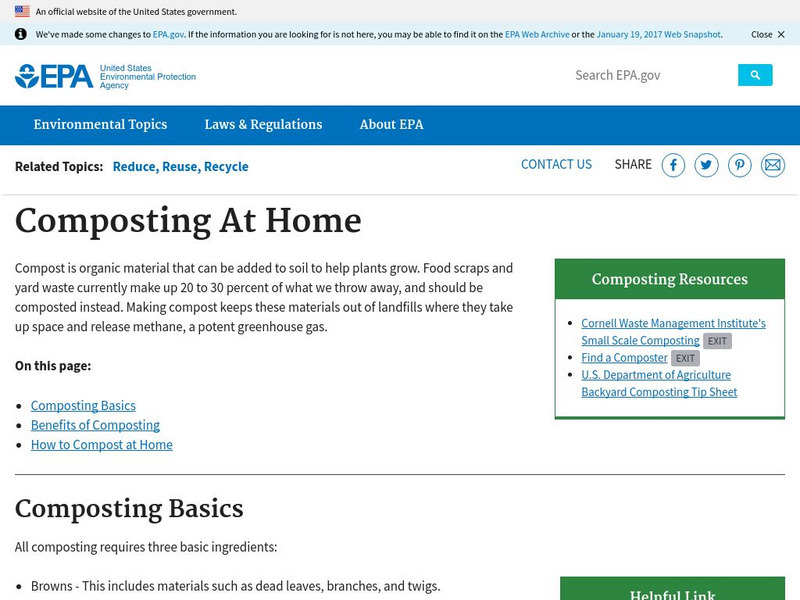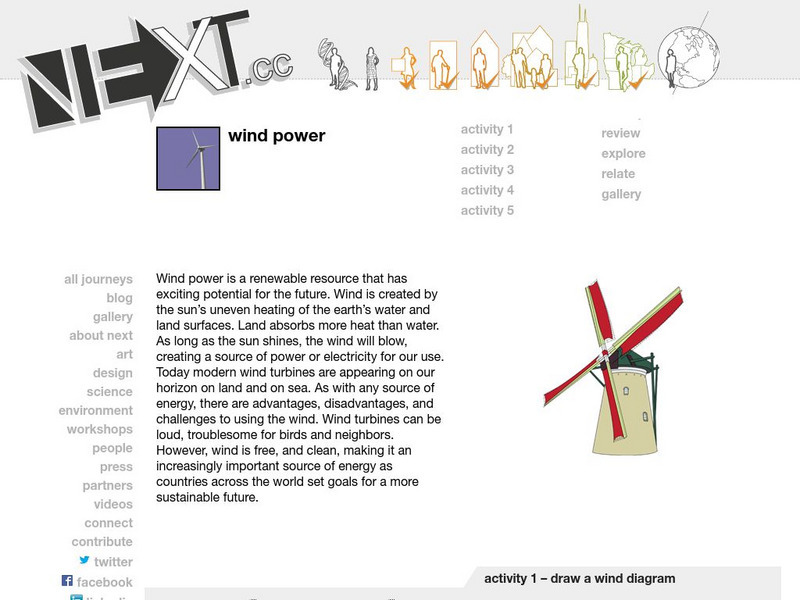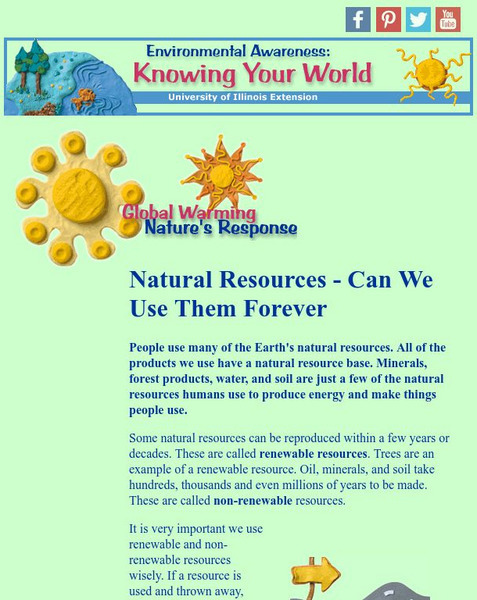National Geographic
National Geographic: Stakeholder Debate: Wind Energy
Using a case study of the Cape Wind Project in Nantucket Sound, students examine the various points of view of stakeholders, and hold a debate to argue about the pros and cons of this wind energy project. Includes handouts for...
Georgia Department of Education
Ga Virtual Learning: Geology Resources
In this interactive tutorial you will learn about geological resources. Learn what the types of resources are and concentrate on learning about mineral resources and how they are obtained and used, and then about energy resources and...
Science Buddies
Science Buddies: He Huffed, and He Puffed, but Didn't Blow the House Down!
In the fairy tale of the three little pigs, the wolf huffed and puffed and blew down the first pig's straw house. But in reality, straw tied into bales is a viable building material that when used properly, makes sturdy and...
Other
The Natural Law Party of the United States of America
The homepage of the Natural Law Party of the United States provides its platform, relevant news, and many informational resources.
National Geographic
National Geographic: Engineering Solutions to Freshwater Problems
Explore how water-based problems in freshwater outlets can be resolved or slowed down with engineering solutions.
Other
Think Green: Think Waste Management
Find out how waste can be recycled and what you can do to aid recycling efforts in your community. With complete overviews of the types of materials that can be recycled: e-waste, paper and cardboard, metals, glass, plastics,...
TeachEngineering
Teach Engineering: The Great Algae Race
In a multi-week experiment, student groups gather data from the photobioreactors that they build to investigate growth conditions that make algae thrive best.
Other
Nrdc: Composting Is Way Easier Than You Think
The NRDC breaks down how to easily achieve at-home composting. Find out what can and cannot be composted.
TeachEngineering
Teach Engineering: Digest Your Food!
In a multi-week experiment, student teams gather biogas data from the mini-anaerobic digesters that they build to break down different types of food waste with microbes. They compare methane gas production from decomposing hot dogs,...
TeachEngineering
Teach Engineering: Biorecycling: Using Nature to Make Resources From Waste
By studying key processes in the carbon cycle, such as photosynthesis, composting, and anaerobic digestion, students learn how nature and engineers biorecycle carbon.
US Environmental Protection Agency
Epa: Composting at Home
Investigate the benefits of composting and discover ways to do it easily at home.
PBS
Pbs Learning Media: Boston Public Schools Capstone Project
The (Boston Public Schools) Capstone Project is an opportunity for students to engage in rigorous project-based learning. It is an opportunity for our students to develop skills to be life, career, and college-ready in a culturally...
ClassFlow
Class Flow: Global Warming
[Free Registration/Login Required] A flipchart that provides information about global warming, and the issues associated with green energy production and usage.
Read Works
Read Works: Fuels of the Future
[Free Registration/Login Required] Students read about renewable energy sources that may replace fossil fuel in the future. A question sheet is available to help students build skills in comparing and contrasting.
Other
Solar Cooking Archive
This website is brought to you by Solar Cookers International. You can view the site in English, German, Spanish, French, Italian and Portuguese. Check out how to build different types of solar cookers.
TeachEngineering
Teach Engineering: The Temperature Effect
Learners explore how the efficiency of a solar photovoltaic (PV) panel is affected by the ambient temperature. They learn how engineers predict the power output of a PV panel at different temperatures and examine some real-world...
Other
Climate Reality Project
To help combat the climate crisis America faces and to protect our environment, the Climate Reality Project clean energy plan includes efficiency, generation, transmission, and transportation.
Next.cc
Next: Wind Power
Engage in the activities provided to learn how the wind is an important source of energy. Click on the links for further exploration
University of Illinois
University of Illinois Extension: Schools Online: Knowing Your World: Natural Resources
This brief article emphasizing the importance of renewable and non-renewable resources urges readers to appreciate and not waste the earth's natural resources. Following the article, there is an activity, a "Mineral Search," through...
Other
The Sustainable Scale Project: Ecological Footprint
The Ecological Footprint is rooted in the fact that all renewable resources come from the earth. It accounts for the flows of energy and matter to and from any defined economy and converts these into the corresponding land/water area...
Climate Literacy
Clean: Car Quest
In this activity, students will determine the environmental effects of existing cars and a fleet consisting of their dream cars. They compute how many tons of heat-trapping gases are produced each year, how much it costs to fuel the...
Other
No Impact Man
The No Impact Man is a blog hosted by a man who has decided to virtually eliminate his effect on the environment. This means limited waste, using renewable forms of energy, and ultimately changing the way his family lives. Could you...
American Association of Physics Teachers
Com Padre Digital Library: Physics to Go: Explore Physics on Your Own
Contains a full physics curriculum with links to games, webcasts, and activities. By creating a free account, students and teachers can create their own personal collection of resources.

